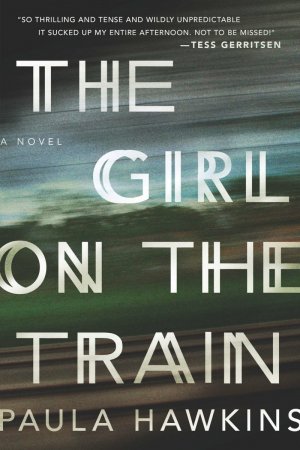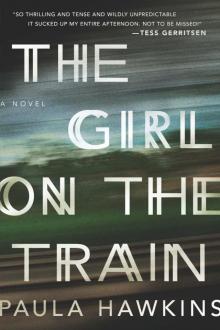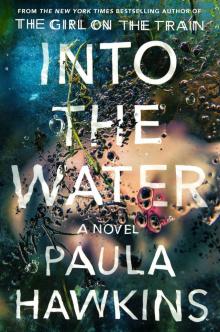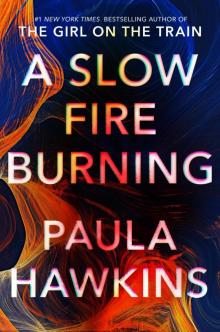- Home
- Paula Hawkins
A Slow Fire Burning Page 8
A Slow Fire Burning Read online
Page 8
On her haunches, she sits, back to the wall. Blood flows from her wounds, soaking into the hard ground beneath her feet. When she runs, she will leave a trail. Her only salvation will be to get to town before he comes after her; if she goes now, she stands a chance, perhaps.
It is dark now, moonless. Save the rhythmic croak of a frog, the night is still. She can, however, still hear them inside. The noises he makes, the noises she makes in return.
She closes her eyes, admits the truth to herself. There is another chance of salvation: She could go back into the house, through the front door and into the kitchen, she could find a knife. Surprise him. Cut his throat.
She imagines, for a moment, her friend’s relief. How they would cling to each other. She imagines telling the police what happened, imagines a heroine’s welcome at school, how grateful her friend’s family would be!
How grateful would they be?
She pictures her friend’s beautiful face, her long limbs, her nice parents, her expensive clothes. She is overwhelmed by the thought of her life, her happiness.
The girl imagines herself entering the room, the knife raised, imagines him turning, catching her, punching her in the throat. She imagines him crouching over her, his knees pressing against her chest, imagines his weight on top of her, imagines the blade pressed against her collarbone, against her cheek, against her lips.
She doesn’t even know if there is a knife in the kitchen.
She could try to help; she could fight. Or she could take advantage of his preference for her beautiful friend. She could run.
This is not her fault. She didn’t even want to get into the car.
She is sorry. She really is. She is sorry, but she runs.
TEN
Detective Barker, his bald pate shining like a new penny in the bright morning sunlight, watched as the uniformed policewoman pushed a plastic stick into Carla’s mouth, scraping it along the inside of her cheek, withdrawing it, dropping it into a clear plastic bag. When she was done, he nodded, satisfied. He asked the policewoman to wait for him in the car outside. The boat on which Daniel Sutherland had been staying, Barker had already explained to Carla, was a rental, and it was filthy. There were traces of at least a dozen people on it, probably more, so they were collecting DNA and fingerprints from anyone and everyone, he said, in order to rule out as many people as possible.
Carla, sitting at her dining room table, wiped her mouth with a tissue. “Well,” she said, rolling her shoulders back to ease the tension at the top of her spine, “there is every chance you’ll find mine.” Detective Barker raised his eyebrows, crossing his arms in front of his chest. “I lied,” Carla went on, “about not knowing that Daniel was living on the boat. I lied about not seeing him.” Barker said nothing. He crossed the room and sat down opposite Carla at the table, lacing his fingers together. “Only you already know that, don’t you? Someone’s said something to you, haven’t they? That’s why you’ve come, isn’t it? Did someone see me?” Still, Barker said nothing. That old trick again, to make you talk, to press you into filling the silence.
It was irritating in its obviousness, but Carla was too tired to resist—she’d not slept more than an hour or two at a time since the detectives had been here last, five days ago. She kept seeing things, starting at shadows, black spots moving in the corners of her vision. That morning, she passed a mirror and was startled to see her sister’s face looking back at her, cheeks hollow, expression fearful.
“Daniel told me he’d rented a boat when he came to pick up his things. He told me to drop by. Told me not to expect much. I went there. Twice. Don’t ask me when exactly, because I honestly wouldn’t be able to tell you.” She paused. “I lied to you because I didn’t want to admit in front of Theo that I’d been there.”
Barker leaned back a little in his chair. “And why,” he said, flexing his fingers so that the knuckles cracked in a disgusting way, “was that?”
Carla closed her eyes for a moment. Listened to the sound of her own breath. “Do you know what happened to my son?” she asked the detective.
He nodded, expression grave. “I do,” he said. “I read about it at the time. A terrible thing.”
Carla gave a stiff little nod. “Yes. My sister was looking after him when it happened, I’m not sure if they reported that? She was supposed to be looking after him, in any case. Theo never forgave her. He’s had nothing to do with her since, not from the day our son died until the day she did. He wouldn’t have her in our lives. He wouldn’t have her in his, in any case, which at the time was also mine. Do you see what I’m saying? I saw my sister and Daniel in secret. Of course, Theo suspected that I saw her occasionally, and there were some arguments about it, but we divorced and I moved here, and it didn’t seem to matter so much any longer. I never mentioned them to him. There it is, I suppose. I’ve been lying to Theo so long about that side of my life that sometimes I forget when it’s necessary and when it isn’t. I didn’t want him to know that I’d visited Daniel on the boat.”
The detective scrunched his face into a frown. “So you lied to us, to the police, during a murder investigation, just because you didn’t want your ex-husband to know you’d seen your nephew?” He opened his palms to her, his fingers spread wide. “That seems extraordinary to me; it seems . . .” He raised his eyebrows. “Are you frightened of your ex-husband, Mrs. Myerson?”
“No.” Carla gave a brief shake of her head. “No, I just . . . I didn’t want to upset him,” she said quietly. “I try my best not to upset Theo, and me having a relationship with Daniel would upset him.”
“Does Mr. Myerson have a temper?”
Carla shook her head again. “No,” she insisted, exasperated. “It’s not . . . it’s not like that.”
“What is it like?” Barker asked. He’d the air of someone genuinely interested; he was looking at her as though she were a specimen, a curiosity. “Did Mr. Myerson think you were trying to replace your lost child? With your nephew? Is that why your relationship with Daniel upset him?” he asked.
Carla shook her head again but said nothing. She turned her face from the detective and stared at the sad, paved backyard, with its padlocked shed, its blackened plants, dead in their pots.
* * *
The shed was empty save for a little red tricycle, bright blue tassels still attached to the handlebars. It was a present, for Ben’s third birthday. They’d had a party at their home on Noel Road, just family—Theo’s parents, Angela and Daniel, Theo’s older brother and his wife, their kids. After the cake, after the candles, they took the tricycle out on the towpath, Carla’s chest aching with tenderness as she watched Ben try it out, his chubby legs pumping up and down as he pedaled as fast as he could. Theo’s face! His pride. “He’s a natural, see that?” And Angela, smoking, one eyebrow arched. “It’s a tricycle, Theo. Everyone can ride a tricycle.” And on the way home, dusk falling, the crowds thinning, Daniel pushing Ben along. Theo’s mother saying, “Careful, Daniel, not too fast,” while Ben and Daniel ignored her completely, the pair of them shrieking with laughter as they careened around a corner, almost toppling over.
When Ben was gone, when the funeral was over and the god-awful mourners finally banished, Carla went to bed and stayed there. Theo rarely came to bed at all. He remained fiercely, angrily awake; through her medicated haze Carla used to hear him pacing in his study off the landing, stomping down the stairs and through the kitchen to the garden to smoke and then stomping back again. She heard him turning the radio on and off, flicking through the channels on the television, playing half a track of a record before sending the needle skittering across the vinyl.
Sometimes he came upstairs and stood in the doorway, not watching her but staring out the window opposite, his hand across his face, fingers working at his stubble. Sometimes he said things, statements that seemed to lead toward questions at which they never quite arrived. Sometimes he t
alked about Angela, about how she had been as a child. “You said she had a temper,” he’d say, or: “You always talked about her crazy imagination. Bloodthirsty, you said. She had a bloodthirsty imagination.”
Occasionally, he asked direct questions. “Was she jealous, do you think? Of the way Ben was?”
It was discussed between them, when Ben was alive, how difficult it must be for Angela not to draw comparisons between their son and her own. Ben hit all his milestones early; he was talkative and agile, empathetic and numerate before his third birthday. He’ll be reading before his fourth, Theo liked to tell people. Carla had to tell him not to boast.
Daniel hadn’t been like that. He was a fussy baby, a poor sleeper, he’d taken forever just to crawl, he was two and a half before he started to talk. He was a clumsy, frustrated little boy, prone to epic tantrums.
“Do you think it bothered her,” Theo asked, “how special Ben was? Because Dan’s a bit of a weird kid, isn’t he? I know I’m not objective—no one is, not about their children—but even so, in this case, I think, objectively speaking, Ben was just the most wonderful little boy, he was—”
“What are you saying?” Carla’s voice sounded like it belonged to someone else, to an old woman. “What are you trying to say?”
He drew closer to the bed, his eyes wide, face flushed. “I’m asking you whether you think Angela was jealous. If, on some level, if she . . .”
Carla clutched at the bedsheets and drew herself painfully up to a sitting position. “You’re asking if I think my sister left that door open on purpose? Because she thought our son was more special than hers? You’re asking if I think she wanted Ben to die?”
“No! Christ, no. Not that she wanted him to die, no. Jesus. I’m not saying she did anything on purpose, I’m just wondering if on some subconscious level she—”
Carla collapsed back to her side, drawing the duvet up over her shoulders, over her head. “Leave me alone, Theo. Please leave me alone.”
* * *
It was a year before Carla redeveloped the habit of getting up every day, showering, dressing herself. It was eighteen months before she saw her sister again, in secret. She told Theo she had decided to join a yoga class. She dressed her weak, fleshy body in tracksuit bottoms and a T-shirt and walked over to her sister’s flat on Hayward’s Place. When Angela opened the door to her, Carla recoiled in shock: Her sister had aged not by a year but by decades. She was emaciated, her sallow skin stretched tight over her skull. She looked hollowed out, desiccated.
Angela’s hair went white overnight. That’s what she said, in any case. Both sisters went gray young, but Angela claimed that she’d gone to bed on Tuesday a brunette and woken up on Wednesday almost completely gray. Just like that. She kept it long and didn’t dye it. “I look like a witch in a fairy tale, don’t I?” she said. “I terrify children in the supermarket.” She was joking, but Carla didn’t find it funny. Carla didn’t dye her hair either; she chopped it all off when it started to go. “You’re lucky,” Angela told her, and Carla flinched. “You’ve got a nicely shaped head. If I cut all my hair off, I’d look like an alien.”
It was a compliment, but Carla was annoyed. She didn’t like the sound of the word lucky in her sister’s mouth, certainly didn’t appreciate it being applied to her. “You can’t go gray overnight,” she said crossly. “I looked it up. It’s a myth.” True, although it was also true that she had read about young women, much younger than she and her sister, Soviet women fighting for the motherland in the Second World War, who’d faced such unspeakable terror they had grayed overnight. She’d read about Cambodian women who witnessed such horror they lost their sight.
“It happened to me,” Angela said. “You can’t say I didn’t experience what I experienced. You wouldn’t know; you weren’t around.”
“Yoga classes” became a weekly thing, an exercise in determination on Carla’s part. She believed in hard work; in fact, she believed that the most worthwhile goals were often the hardest to realize. She believed that if you worked hard enough at something, most often, you would achieve it. Call it the ten thousand hours theory: If she spent ten thousand hours trying to forgive her sister, would she succeed? No way of telling, but it seemed a reasonable course of action—after all, her parents were gone, her son was gone. There was precious little left for her in the world: only Angela, and little Daniel, and Theo, of course, although she knew, in the saddest part of her heart, that she and Theo would not survive what had happened to them.
Once when Carla came to visit Angela, she heard noises as she approached the front door, voices raised. She had barely finished knocking when the door flew open, her sister yanking at it as though she were trying to pull it off its hinges. “Oh, Christ,” she said, when she saw Carla. “Forgot it was our day. Daniel’s off school. He’s—” She broke off, shrugged. “He’s just . . . off school.”
They sat in the living room as they always did, and after a while, Daniel came down to say hello. In their year and a half of separation, Angela had aged by a decade and Daniel not at all. At nine years old he was still small for his age, dark and uncertain. He had a habit of sneaking around, appearing suddenly and without warning, wringing his hands in front of his belly. “Like a little animal,” Carla commented with a smile.
“A little savage,” his mother said.
That day, when he appeared, as if from nowhere, in the doorway and said, “Hello, Aunt Carla,” he bared a mouth full of metal at her.
“Jesus, Daniel, don’t make that face!” Angela snapped. “It’s his fucking braces,” she said. “He can’t smile normally any longer. Most kids when they get them, they try to hide their teeth. Not him—he pulls that awful expression all the time.”
“Angela,” Carla hissed, as Daniel slunk away as quietly as he’d arrived, “he can hear you.”
Her heart, the bit of it that was left, broke for him.
The next time she came, she brought him a huge set of colored pencils, which she took up to his room. His eyes shone when he saw the gift. “Oh,” he breathed, delighted almost beyond words, “Aunt Carla!” He smiled his ghastly smile, wrapping his skinny arms around her waist.
Carla froze. She was unprepared for how it took her, the feeling of a child’s body against hers for the first time in so long; she could scarcely breathe, could hardly bear to look down at his small head, at the rich chestnut of his hair, at the nape of his neck, on which she noticed two bruises. Around the size of a finger and a thumb, as though someone had grabbed him there, and pinched hard. When Carla looked up, she caught her sister watching them.
“He gets into fights at school all the time,” she said, turning away. Carla heard her clumping down the stairs, her tread strangely heavy for one so light.
Carla let the child hold her for a little longer, and then, gently, she removed his arms from around her waist and crouched down so that her eyes were level with his. “Is that true, Daniel?” she asked him. “Have you been fighting?”
He wouldn’t look at her for a moment. When he did, his expression was grave. “Sometimes,” he said quietly, “sometimes people don’t . . . they don’t . . .” He blew out hard through puffed cheeks. “Oh, it doesn’t matter.”
“It does matter, Dan. It does.”
“No, it doesn’t,” he said, shaking his head gently, “because, I’m going away. I’m going to a new school. I’m going to live there, not here anymore.” He hugged her again, his arms around her neck this time. She could hear his breathing, quick and light, like cornered prey.
Angela confirmed it; he was going to boarding school. “His father’s paying. It’s the same one he went to, somewhere in Oxfordshire. It’s quite good, apparently.”
“Somewhere in Oxfordshire? Ang, are you sure about this?”
“You’ve no idea how difficult things are, Carla.” She lowered her voice. “How difficult he is.” Her voice had that hard edge a
gain. “Don’t. Don’t look at me like that. You don’t see it, you don’t . . . you’re here once a fucking week, you don’t see how he behaves when it’s just me and him, you don’t . . . He was traumatized. Severely traumatized by what happened to him.”
Carla gave a swift shake of the head and Angela said, “I know you don’t want to hear this, but it’s true.” She reached for her cigarettes, fumbled one out of the pack. Angela’s hands shook all the time now. Before, she’d been a little shaky the morning after the night before, but now it was constant, a tremor in hands that were always moving, always reaching for something to occupy them—a glass, a book, a lighter.
“Yes, of course he’s traumatized.”
“The psychologist says,” Angela said, lighting her cigarette, taking a drag, “that now he’s telling her that he saw . . . you know, that he saw him fall, that he saw Ben fall. He’s saying that it wasn’t just that he found him, but that he actually saw it.” She closed her eyes. “He’s saying that he screamed and screamed, that no one came, he’s saying—”
Carla held up her hand—Angela was right, she didn’t want to hear this. “Please,” she said. She took a moment to allow her breath to steady. “But surely they can’t think—you can’t think—that the answer to his trauma is to separate him from his mother?”
“His mother is the whole problem,” Angela said, crushing her half-smoked cigarette in the ashtray. “He blames me, Carla, for what happened.” She looked up at Carla, wiping tears from her cheeks with the backs of her hands. “He told his psychologist that what happened was my fault.”
It was your fault, Carla thought. Of course it was your fault.

 Girl on the Train
Girl on the Train The Girl on the Train
The Girl on the Train Into the Water
Into the Water A Slow Fire Burning
A Slow Fire Burning